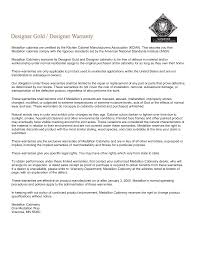
Solar panels are a great way to reduce your electric bill. But before you dive into a full blown solar power project, here are some tips to keep in mind.
It's not hard to see that solar panel technology has advanced significantly over the past decades. Because there is a growing demand of solar energy, the cost of this eco-friendly energy source has been steadily decreasing. While the price of solar power might be decreasing, it doesn't mean you're getting sub-par service.
There are many incentives in Cape Coral to encourage homeowners into solar energy. These include rebates and tax breaks. Installing solar panels can be exempted from sales tax. There are many options. These include a mortgage, home equity loan and a solar loan. An experienced installer can help you get a solar system on your property.

Depending upon the size of the panel, you may be eligible to receive free electricity. This could save you money in the end. You will also be helping the environment. It's smart to invest in a home-solar panel.
Do your research to get the best return on your investment. Get quotes from at least a few companies. Also, check with your insurer to confirm that they cover solar panel installation. Luckily, many of these providers are required to carry this type of insurance.
An in-depth consultation is the best way for you to see what's possible. A qualified solar consultant will give you a clear cut quote that shows you what to expect. They will also tell you which parts of your home are the most suited to solar power. You can request a complimentary, no-obligation solar discovery call if you are unsure about which solar panel is best for you.
You can always get a free estimate from your local home improvement store if you aren’t sure which way to go. However, you might want to have a second opinion from a professional solar panel installer before you sign on the dotted line.

The solar industry is big and you should be well-informed about all the options available to you. As a result, you'll find companies that are eager to help you in any way they can. Some companies offer a lifetime workmanship warranty.
The best way to get started is to contact one of the many reputable solar companies in Cape Coral, FL. They will be able to tell you which products are a good fit for your needs, and can also show you how to get the most out of your solar panel investment. After all, you're going to be living with them for the foreseeable future, so make sure to treat them well.
FAQ
Do I need anything to sign before I can start working?
Yes, the SCA must be signed in both cases. This means that either party cannot change their mind after signing the SCA without the consenting party.
Can I cancel my agreement at any time?
Yes. But you must do this within 14 calendar days of signing your contract. Your contract can be terminated by providing written notice no later than 7 working days before the specified end date. In some cases, however, you might still owe contractor money for work done.
Who is responsible for a Service Agreement
Your service agreement with your customer defines the services you will offer them. It outlines the customer's responsibilities, what you have to do for them, and when they have to pay you.
A service agreement will also indicate if additional fees are required for additional services.
Service agreements should contain all terms and conditions applicable to the contract. This includes delivery times, payment methods, warranties, and so forth.
This template will help you cover all aspects of the agreement.
How can I get service contract agreements?
You can obtain a standard form of SCA from your local government or contracting authority. You could also use our online quotation generator to learn more about your requirements, and then send us details so that we can get in touch with you for further information.
What documents are required to apply for building permits?
Along with your SCA, proof must be provided that:
-
Visitors will find enough parking space.
-
Access routes are suitable;
-
All utilities are easily accessible.
-
All works must comply with applicable planning regulations.
Statistics
- Reasonable late fees go up to 25% per year on unpaid sums. (lawdepot.com)
- (d) Contractor disputes related to compliance with its obligation shall be handled according to the rules, regulations, and relevant orders of the Secretary of Labor (see 41 CFR60-1.1). (acquisition.gov)
- (1) Ascertain the extent to that offers are based on the payment of overtime and shift premiums; and (2) Negotiate contract prices or estimated costs without these premiums or obtain the requirement from other sources. (acquisition.gov)
- (ii) Name, address, and telephone number of each proposed first-tier subcontractor with a proposed subcontract estimated at $10 million or more. (acquisition.gov)
- While we offer all our high-quality services at competitive prices, we know that many who need our services are on fixed incomes, so we offer a 10 percent discount for seniors and military members. (homeservicecontractorsinc.com)
External Links
How To
What should a service arrangement include?
Every business relationship should have a Service Agreement (SA). It sets out what you expect from one another and how you intend to achieve these expectations. The SA also details when and where each party should fulfill its contractual obligations.
The following are key elements for a successful SA
-
Both parties agree on the scope of work and the services they require.
-
Particulars of the payment terms, including delivery dates and start dates.
-
A price agreed upon for the project.
-
Any additional costs such as VAT etc.
-
Whether there are other topics that require discussion.
-
Who will take care of the job if it goes wrong?
-
How disputes will be settled
-
What happens when one party breaks the contract?
-
What happens when there is a disagreement?
-
When does the contract go into effect?
-
What happens if one party fails to perform?
-
What length of time will you be required to pay invoices
-
Who pays for travel costs?
-
Where the money came from.
-
What happens when the client has a change of mind?
-
What happens when the supplier doesn’t show up.
-
Who has access during construction to the site?
-
What happens if the client cancels the project?
-
What happens when the product is defective?
-
What happens if a manufacturer refuses to provide parts?
-
What happens if your equipment breaks down?
-
What happens if the project is delayed?
-
What happens if the work isn’t completed within the stipulated time?
-
What happens to the project if it isn't up-to-standard?
-
What happens if the cost exceeds?
-
What happens if materials are not delivered on time?
-
What happens when the material arrives damaged.
-
What happens when the products don't meet standards?
-
What happens if the job is canceled before completion.
-
What happens if the business goes under?